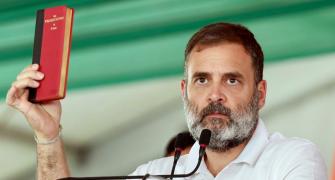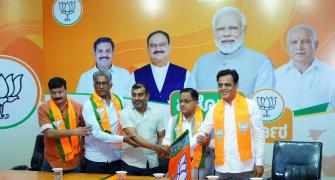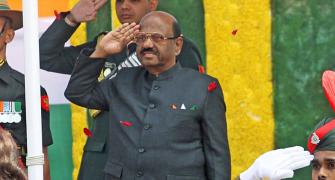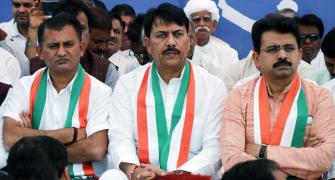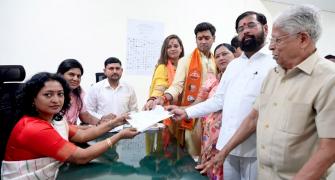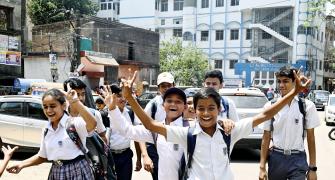The non-proliferation ayatollahs have gone on overdrive on the eve of the US Senate debate and vote on the enabling legislation to facilitate the US-India civilian nuclear agreement.
They have written to all Senators seeking support for amendments that would address serious flaws that still plague the proposed US-India nuclear trade legislation, which the Senate is likely to take up on Wednesday.
The letter, signed by 18 nonproliferation advocates of the Arms Control Association, warned that despite some important adjustments made to the Administration's original proposal by the Foreign Relations Committee, the arrangements would have far-reaching and adverse effects on US nonproliferation and security objectives.
They called on the Senate not to approve the legislation -- which India already has problems with -- in its current forms and called for further improvements in several key areas, if it is to be considered.
Some of their recommendations include:
- A determination that India has stopped the production of fissile material for weapons or else joined a multilateral fissile production cutoff agreement.
- A determination and annual certification that the US civil nuclear trade does not in any way assist or encourage India's nuclear weapons program.
- Measures to ensure that the United States does not continue to provide nuclear assistance directly or through others suppliers in the event that India breaks the nonproliferation commitments outlined on July 18,2005, and
- A determination that the Government of India or its affiliated entities are not engaged in illicit procurement of WMD (weapons of mass destruction)-related items.
The nonproliferation advocates argued: "We believe these measures are necessary because India has neither joined the Nuclear Non-proliferation Treaty, nor accepted safeguards on all of its nuclear facilities, and India's non-proliferation policy is not fully consistent with the non-proliferation practices and responsibilities expected of the original nuclear-weapon states.
"While we agree that building upon the already strong US-Indian partnership is an important goal, we remain convinced that it can and should be pursued without undermining the efforts to prevent the proliferation of the world's most dangerous weapons," they added.

